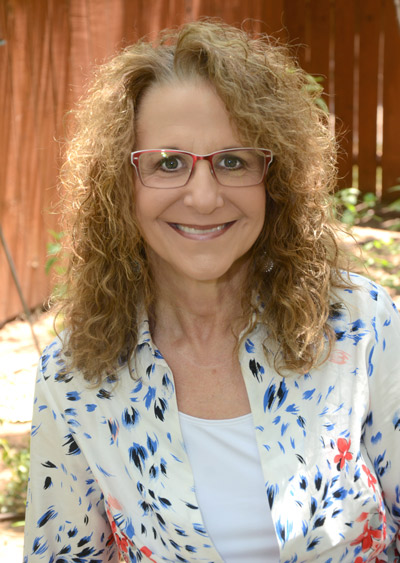Graduate Program
Doctoral students in the counseling psychology program in the Department of Psychological Sciences at Texas Tech University receive academic training in the broad and general core areas of health service psychology and in the fundamental areas of counseling psychology. In addition, students receive training in a variety of applied settings such as the Psychology Department Clinic, the TTU Student Counseling Center and at various sites in the community. All students are taught methods of scientific inquiry and are expected to produce research-based dissertations. Most students in the program also receive training in the teaching of psychology to help prepare them to be effective classroom instructors as they often teach courses independently.

If you have any questions, please contact the Counseling program direction, Dr. Sheila Garos at sheila.garos@ttu.edu or (806) 834-1344
Overview
The Ph.D. program in Counseling Psychology in the Department of Psychological Sciences at Texas Tech University offers training in the professional practice of health service psychology. Through broad and general training in health service psychology, our primary aim is to prepare students for entry-level positions as counseling psychologists in a variety of settings. Additionally, we offer specialized experience in the fields of forensics, health psychology and neuropsychology. Our program has been accredited by the American Psychological Association since 1964 and is grounded in a science-practitioner model of training. The Counseling Psychology program affords students an opportunity to develop competencies in the following areas: 1) understanding and application of various models of psychological theory, 2) counseling and psychotherapy skills, 3) psychological assessment, 4) research and methodology, and 5) professional ethics. Both research and practice are considered important.
Our program recognizes the importance of both personal and professional development as integral aspects of training counseling psychology students. Additionally, our program is generalist in nature, i.e., while remaining anchored in the basic values of the discipline, enough breadth and flexibility is available for students to tailor training experiences to match their interests, as well as the demands of a changing marketplace. Students in our training program are urged to obtain applied experience in a variety of settings and to seek opportunities for teaching and research collaboration. Finally, we strive to maintain a training environment that promotes a supportive and positive learning experience.
In accordance with the American Psychological Association Office of Accreditation, the Counseling Psychology program is committed to fostering both knowledge of and appreciation for diversity as reflected in our students, our faculty and in our professional activities. Moreover, this commitment is evidenced by our integration of multicultural topics throughout our counseling and departmental core courses, students' practicum experiences, and courses which focus primarily on broadly defined issues pertaining to diversity and underrepresented groups. In addition, the Counseling Psychology program actively recruits applicants from diverse groups, including racial and ethnic minorities, gays/lesbians/bisexuals, individuals with physical disabilities, non-traditional students, members of varying socioeconomic divisions and other traditionally under-represented groups.
Our counseling psychology doctoral students are required to successfully complete courses that fulfill both departmental area requirements as well as requirements specific to the Counseling Psychology program. In addition, each student is expected to successfully complete a written qualifying examination, a master's level research project (commonly called a second-year project), and a dissertation. Students begin their practicum experience in the spring semester of their first year. Completion of our program typically requires three to five years to complete coursework and the thesis project, prepare for and pass the qualifying exam, participate in practica and devote time to dissertation research.
Students attend on a full-time basis and register for course hours throughout the fall, spring, and summer semesters. In addition, students are required to successfully complete one additional year of training at a predoctoral internship site. Graduates of our doctoral program have obtained employment in a variety of settings such as university counseling centers, VA hospitals, outpatient clinics, community mental health centers, psychiatric and medical hospitals, prisons, university or college academic departments, and independent practice.
The Counseling Psychology Program has made the necessary changes to be in compliance with Texas Senate Bill 17 regarding diversity, equity and inclusion. More information can be found here.
Link to APA Student Admissions, Outcomes, and Other Data
Public Disclosure: Professional Licensure by State
The Texas Tech University Counseling Psychology Program is required to publicly disclose to prospective and currently enrolled students whether our program meets the education requirements for licensure or certification for all 50 states, District of Columbia, and specified U.S. territories. Our program is responsible for determining whether our academic program meets applicable state education requirements for professional licensure or certification. See the TTU Counseling Psychology Program's Professional Licensure by State Table.
Program Acceptance for Licensure by State
APA Accredited, Next Review: 2033
Contact Information for Accrediting Association:
Office of Program Consultation and Accreditation
750 First Street, N.E.
Washington, DC 20002-4242
Phone: 202-336-5979
Fax: 202-336-5978
Email: apaaccred@apa.org
Web: www.apa.org/ed/accreditation
Psychological Sciences
-
Address
Texas Tech University, Department of Psychological Sciences, Box 42051 Lubbock, TX 79409-2051 -
Email
kay.hill@ttu.edu
